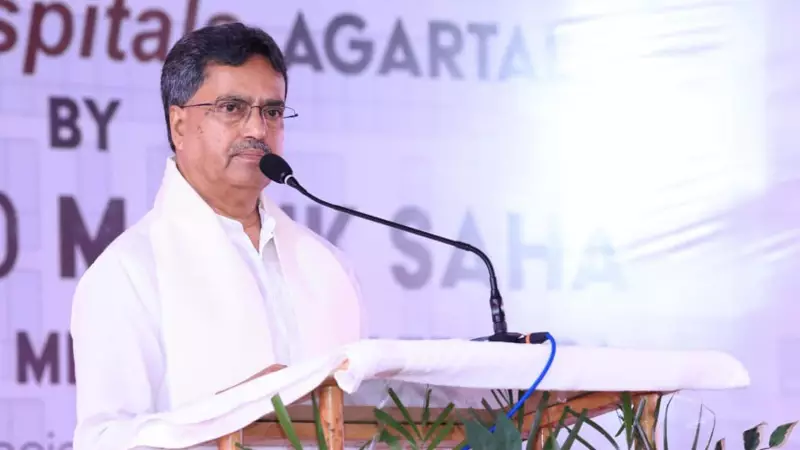
In a significant political development that could reshape Northeast India's political landscape, Tripura Chief Minister Manik Saha has publicly extended an invitation to the regional party Tipra Motha for potential alliance discussions. This strategic move comes as the Bharatiya Janata Party strengthens its foothold in the sensitive northeastern region.
BJP's Calculated Outreach
The ruling BJP in Tripura has made a compelling overture to Tipra Motha, the prominent regional party that has been advocating for greater rights and development for indigenous communities. Chief Minister Saha's invitation marks a pivotal moment in Tripura's political narrative, suggesting the BJP's willingness to engage with regional forces to maintain its political dominance.
"Our doors are always open for discussions with Tipra Motha," stated CM Saha, emphasizing the party's inclusive approach toward regional stakeholders. This conciliatory gesture indicates the BJP's recognition of Tipra Motha's growing influence, particularly among tribal communities in the state.
Strategic Importance of Northeast Alliances
The political maneuvering in Tripura reflects the broader significance of the Northeast region in national politics. With several states in the region going to polls in the coming months, the BJP's outreach to Tipra Motha demonstrates the party's careful calibration of regional alliances to secure its political interests.
Political analysts suggest that this move could potentially neutralize opposition strength while addressing regional aspirations. The BJP's strategy appears to balance national integration with regional accommodation, a formula that has yielded electoral dividends in other northeastern states.
Tipra Motha's Rising Influence
Tipra Motha has emerged as a significant political force in Tripura, championing the cause of indigenous communities and demanding greater autonomy and development funds. The party's performance in recent local elections has made it a crucial player that neither the BJP nor the opposition Congress can afford to ignore.
The regional party's stance on tribal rights and development issues has resonated with substantial sections of Tripura's population, making it a potential kingmaker in future political arrangements.
Broader Implications for Northeast Politics
This political development in Tripura occurs against the backdrop of the BJP's concerted efforts to establish itself as the dominant political force across all northeastern states. The party's alliance-building strategy has previously proven successful in states like Assam, Manipur, and Arunachal Pradesh.
As political equations evolve in the region, the potential BJP-Tipra Motha understanding could set a precedent for how national parties engage with regional aspirations while pursuing their political objectives.
The coming weeks are likely to see intensified political activity in Tripura as both parties assess the benefits and compromises of a potential alliance. The outcome of these political negotiations could significantly influence Tripura's governance and development trajectory in the foreseeable future.






